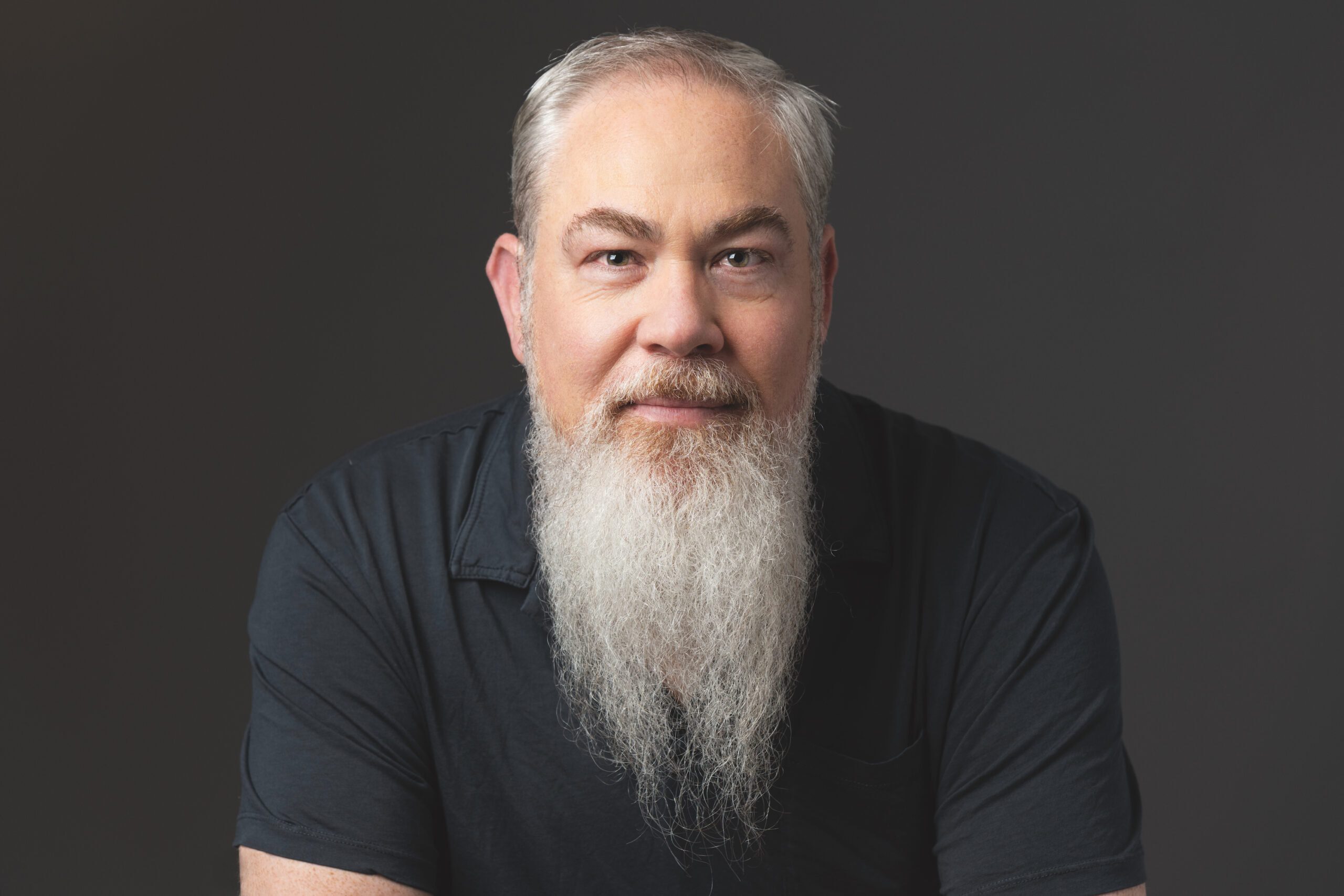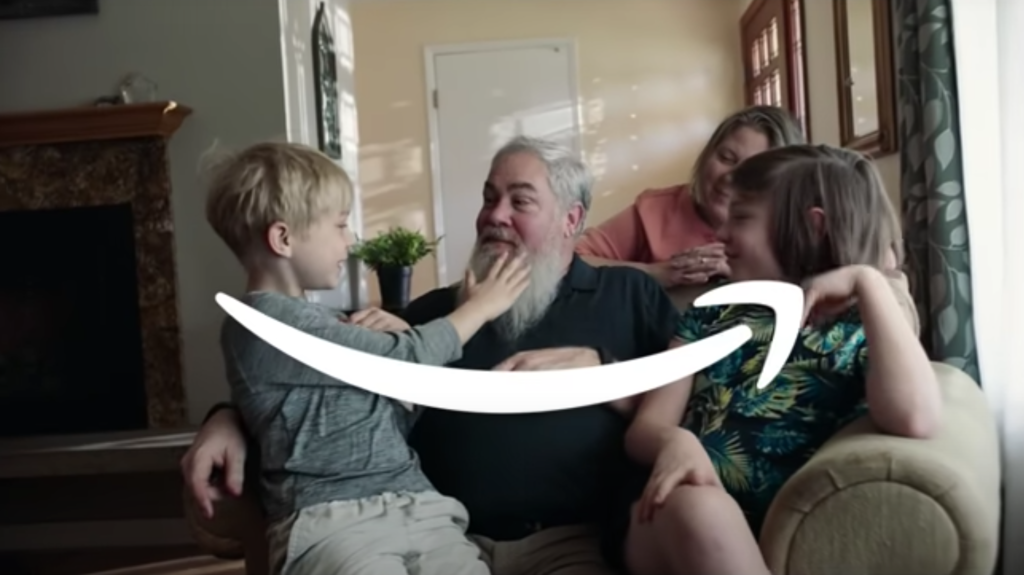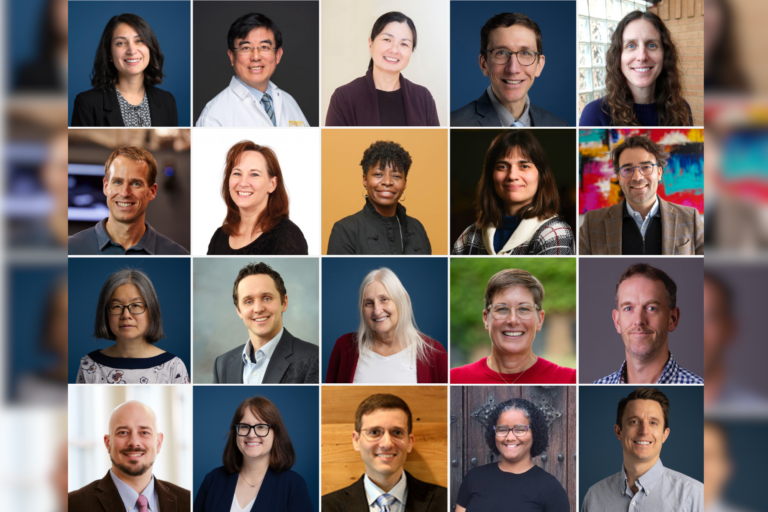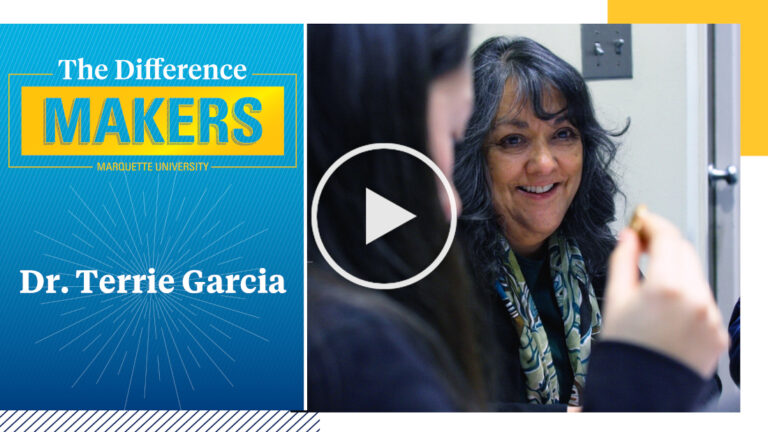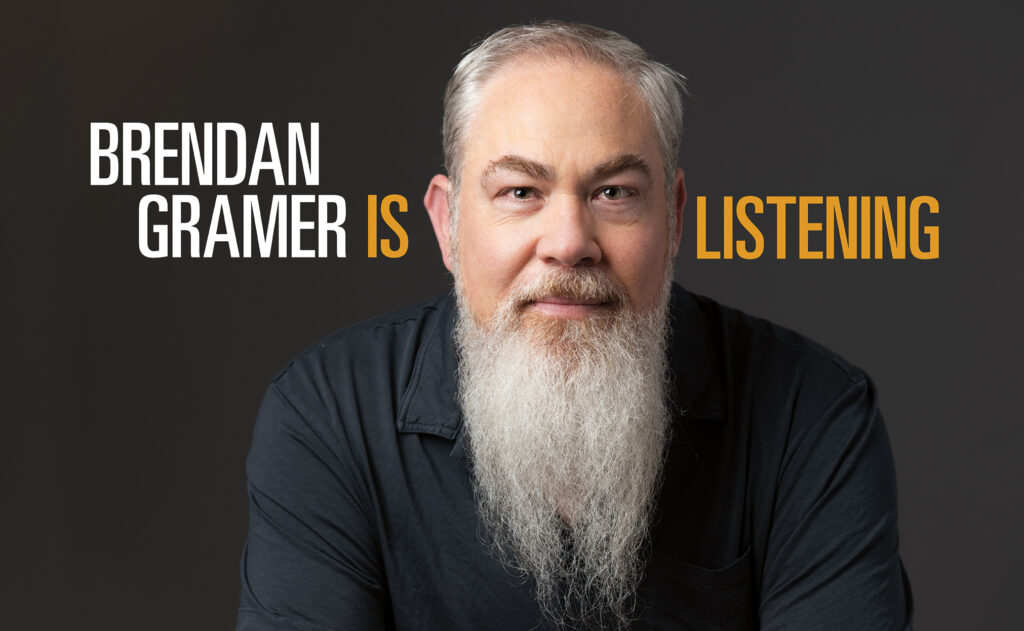
Born deaf, the Amazon executive and alumnus knows what it’s like to feel unheard. It’s why his life’s work revolves around hearing what the world needs.
By Lora Strum
This Zoom call is not going well. The screen keeps freezing and the audio is stuttering. Brendan Gramer, however, is unfazed by the technological failure. Gramer, CJPA ’94, was born deaf and has spent his life finding ways to communicate. This moment is no different.
“Sometimes I have to help others understand what I need,” Gramer, 50, says once the technical issues have been resolved and a sign-language interpreter has joined the call. “Everyone has their own way of communicating.”
With more than 20 years spent designing web experiences to help people interact with the world around them, Gramer developed apps, content management systems and more before joining Amazon in 2015. Now he is senior manager of user experience for payments. Focused on technological accessibility and efficiency, Gramer has used his skills to make Amazon’s familiar checkout experience work seamlessly for people using SNAP food benefit cards to purchase groceries or for those who want to use health savings accounts for health needs.
Gramer is also global president of Amazon’s People with Disabilities employee resource group, an organization he co-founded to help one of the world’s largest companies better support employees and customers with disabilities. Through the group, he has helped create the “Tap for Alexa” feature that allows the deaf and hard of hearing to give the digital assistant visual cues for commands. He also has helped translate the Amazon logo into American Sign Language and add a voice command system to the Amazon Lockers so blind individuals can more easily retrieve packages. “We want to help customers with disabilities by sharing our voices with leaders to allow them to learn more about how we live, our attitudes and our beliefs,” Gramer says.
Gramer’s process of sharing his voice was featured — and amplified — when his inclusion efforts became the subject of a commercial in the high-profile “Inside Amazon” series. While it was important to Gramer that the campaign explore the value of making companies function better for those with disabilities, he also wanted to showcase the many facets of the deaf experience. It’s why he invited the cameras into his home where he and his wife, Laura, are raising their sons, Brett and Lucas, 10 and 7, who were also born deaf. The commercial is “100 percent the real me,” Gramer says. He hopes that it shows how disabled individuals “are human too.” Since debuting in May 2021, the ad has generated more than 20 million views on YouTube — more than any other spot in the series — and was broadcast during major sporting events. Everywhere Gramer goes, people now recognize him and his signature chest-length beard. They share how his story helped them understand disability. This feeling of being understood, Gramer says, has been central to his work for years.
Historically, disability advocates like Gramer have had to struggle to communicate with the world around them. Gramer grew up mainstreamed in a hearing world and, to fit in, he used oral communication with friends and family. While many people were supportive, he still faced slights or microaggressions, called audism in the deaf community, from those who may not recognize their hearing privilege. He gives an example that sometimes happens when he’s in a large group and asks someone to repeat themself. Often, that person will say to him, “Oh, never mind,” and move on. Deaf individuals feel left out in those moments, he says. “It doesn’t recognize us as human beings.”
In those situations, he tries to identify reasonable accommodations. When dining out, he’ll ask the waitstaff to write down any specials so he doesn’t have to strain to understand them over the cacophony of dishware and conversation. This form of self-advocacy was something he honed through his interactions with others in the deaf community. “I let go of the idea that I was weak or dependent on others, or that I couldn’t ask for support,” Gramer says. In adopting that new mindset, he stopped referring to himself as deaf and instead adopted the strength inherent in being Deaf — capital D.
Friendly and attentive even over a pixelated Zoom call, Gramer clearly values the forging of strong networks. It’s a habit he first developed in grade school and continued to cultivate at Marquette, where befriending fellow students was about more than camaraderie. Letting people in allowed him to compare notes when he couldn’t understand a lecture and create a study group that helped meet his unique needs.
Gramer’s life may be the embodiment of what it means to Be The Difference by embracing differences, but for him the idea goes beyond just achieving workplace change. Being a difference maker requires being vulnerable enough to share our stories. “That empowers all of us to become closer and to create support,” he says. “That’s the message I want to tell everyone at Marquette: Share your stories, believe your truth and ask for help.”
Today, Gramer’s dedication to finding new ways to help others communicate is unwavering, but what he’s most excited about in his work and life is leaving something behind for his sons. “I want to have lived my life knowing what I’ve done benefits others, especially my boys,” he says, “and makes the world a better, more inclusive place for them.”

